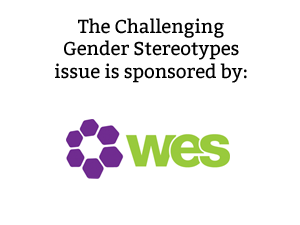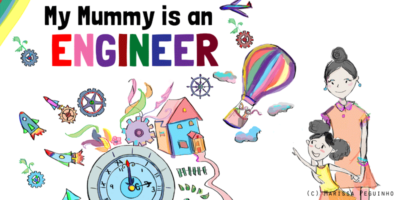Dr. Stephanie Schnurr is an associate professor at the Centre for Applied Linguistics at the University of Warwick, where she has carried out research into the crucial role that communication plays in leadership performance and the impact of gender. She is originally from Germany but she has lived and worked in different countries for more than a decade. Stephanie gained her Ph.D. from Victoria University of Wellington, New Zealand, and before coming to Warwick in 2009 she lived in Hong Kong for three years, where she worked at the University of Hong Kong.

“…women in leadership positions or women who speak in ways that are traditionally associated with masculinity (such as being decisive, direct, and perhaps aggressive) are often judged negatively by their colleagues, while the same behaviour is perceived as appropriate when used by men…”
Discovering sociolinguistics
I started studying English and German literature, and as part of this degree we had to take at least one module in linguistics. While most of my fellow students really dreaded linguistics, I enjoyed it much more than the other literature-based modules and so decided to do more linguistics.
Initially I was quite fond of syntax and morphology, but when I was introduced to sociolinguistics, and gender studies in particular, I knew I had found what I always wanted to do. After my M.A. in Germany, I then went to New Zealand to do my Ph.D. I got my first job in Hong Kong, and moved to the UK in 2009. I’ve been at the Centre for Applied Linguistics at the University of Warwick ever since.
During term time I spend most of my time teaching and supervising Ph.D. students – although I do try to squeeze in a bit of time for research, and during the quieter, teaching-free time of the year (usually the summer), I focus more on my research.
Research into gender in the workplace from a sociolinguistic perspective
One of the key issues in gender research is that in spite of recent attempts to move towards more equality between men and women in the work domain, gender discrimination still exists on many different levels – unequal recognition of women’s performance and success, less access to promotion opportunities, and the infamous pay gap are just a few prominent examples.
Taking a sociolinguistic approach to gender, we are able to identify and point to everyday instances of this inequality and discrimination – especially where they happen in and through language.
For example, we can show how the achievements or contributions of women may be overlooked in a particular meeting or speech, and how women’s success is often assigned to the whole team; or how women may be treated differently, and may be excluded from the old boys’ network and thus miss out on important networking or mentoring opportunities.
Gender stereotyping through language at work

Reflecting on our reactions as well as our actions
It’s not only the way we use language that has an impact, but also the ways in which we react to how others speak. There is a lot of research that shows that women in leadership positions or women who speak in ways that are traditionally associated with masculinity (such as being decisive, direct, and perhaps aggressive) are often judged negatively by their colleagues, while the same behaviour is perceived as appropriate when used by men.
So there’s still a long way to go before men and women at work are given equal opportunity to succeed and receive equal recognition for their performance, and it is important to pay attention to these issues and to be aware of how our use of language and our reaction to others’ use of language can potentially discriminate against women and other groups.
There are many simple ways to avoid gender discrimination. These include:
- Making sure job ads and promotion opportunities are written in a gender inclusive way and are attractive to men and women;
- Checking how your company or department is representing itself on its website – this may include simple things like ensuring there’s an equal number of men and women doing different, and not gender-biased tasks (e.g. making sure it’s not only men who are shown operating machinery and giving speeches);
- Staying constantly aware of your own stereotypes and trying to challenge them as much as possible (e.g. why did you automatically assume the new IT person was a man and the new admin support person a woman?).
Coming up next for me and the Centre for Applied Linguistics at Warwick
I’ve just finished writing a book on Language and Culture at Work (which also has a chapter on gender), and I’ve started thinking about various next projects – all of which involve gender in one way or another. Gender is a very pervasive aspect at work that can’t be ignored.
http://www2.warwick.ac.uk/fac/soc/al/people/schnurr/
https://twitter.com/WarwickAppLing
https://www.facebook.com/warwickcal






